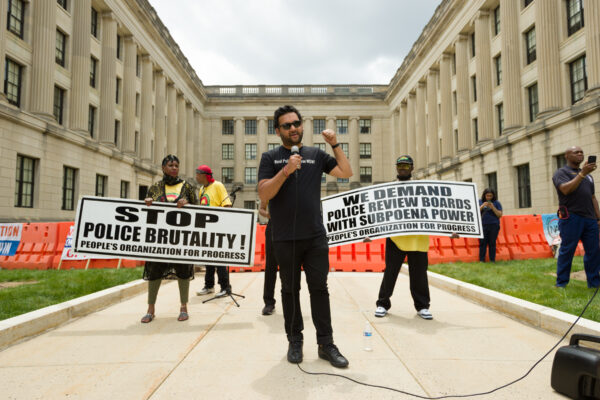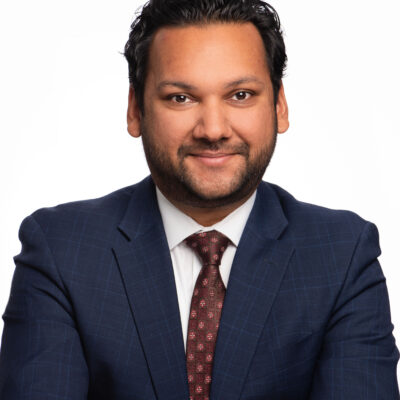When the ACLU of New Jersey first called for a licensure scheme for police officers in our state nearly two decades ago, we were proud to be in the vanguard of advocates who were already in the throes of a now-mainstream national reckoning: reimagining what accountable policing could and should look like in our communities.
It took the New Jersey Legislature nearly 20 years to agree when the corresponding bill was finally passed and signed into law in 2022.
In that time, more than 7,000 people across the country have been shot and killed by police.
And in that time, we have continually urged lawmakers to avoid the same mistake in delaying action that will increase accountability and transparency of policing.
Each day, we leverage every tool we have to push for a fair and equitable New Jersey. We call this integrated advocacy, an approach that utilizes litigation, political and legislative advocacy, community organizing, public education, and strategic communications to achieve our transformative vision for the future. In our work to hold police accountable, we’ve used these tools to call for police disciplinary records to be made public; for an end to unjust stops and searches by police; for communities to play an active role in oversight of law enforcement through civilian review boards; for the restriction of officers’ authority to use deadly force; and for the abolishment of qualified immunity, a legal principle that makes it nearly impossible to hold police accountable for misconduct.
We partner with community advocates throughout the state through New Jersey Communities for Accountable Policing, a unified voice that puts impacted New Jerseyans at the forefront.
And when inaction from those in power comes at a tragic, preventable human cost, we call for the accountability that the community needs.
Most recently, on March 3 in Paterson, Najee Seabrooks was experiencing a mental health crisis when he called the police. The Paterson Healing Collective (PHC) – a community violence intervention group that Mr. Seabrooks worked at and dedicated his life to – was on the scene and pleaded with officers to let the Collective do what they do best: de-escalate and save lives. He deserved care from mental health professionals. Instead, he was shot and killed by police.
Mr. Seabrooks should be alive today.
Unified calls for action from the Paterson community, the ACLU-NJ, and partner advocates around the state are what pushed the New Jersey Attorney General to initiate a formal takeover of the Paterson Police Department, which is a drastic but necessary step in response to officers who have lost community trust for decades.
But we know the Paterson community, and all New Jerseyans, deserve more. We’ve joined the local calls for a federal investigation by the Department of Justice. We’re working with community groups in Paterson to help advise during the AG’s investigation. We’ve filed public records requests on behalf of the PHC to learn about the ways in which the Passaic County Prosecutor’s Office has implemented an AG directive intended to improve how police handle interactions with people with special needs or mental illness. And we’ve called for federal and state investigations into other instances of police misconduct in Paterson, including a recent incident when officers brutalized teenagers who were recording police activity.
Protecting and expanding civil rights and civil liberties for all is what the ACLU does best. We challenge authority directly. We embrace action and protest. We organize against power. We advance landmark cases through the courts and make arguments about correcting injustice and our vision for the future.
We’ve seen our integrated advocacy approach shift popular opinion, push our communities toward progress, and mobilize the public and stakeholders alike to achieve change that has powered our movement for generations and continues to ground our work today.
Our legal docket at the New Jersey Supreme Court has proven that both incremental and transformative change are possible through the courts.
But even our most tried and true strategies – litigation, political and legislative advocacy, community organizing, public education, and strategic communications, to name just a few – are often met with resistance from lawmakers who too often prioritize law enforcement and other state power over people.
For New Jersey to achieve wholesale change in law enforcement – and address the stark racial disparities that continue to perpetuate violence against Black and brown communities – lawmakers must come to the table with the intention to represent the needs of their constituents.
New Jersey has proven it can be a national leader in pioneering a future that is fairer and more just. We can be fearless and lean into our values of justice for all and reimagine policing as we know it. It’s past time for lawmakers to put power in people, not police. Until lawmakers act, more Black lives are put at risk and our communities are left to pay an immeasurable price.
With each passing day of silence, legislators’ ties to the police lobby only grow louder. Soon, it will be a deafening roar on the mind of every New Jerseyan casting their ballot.


